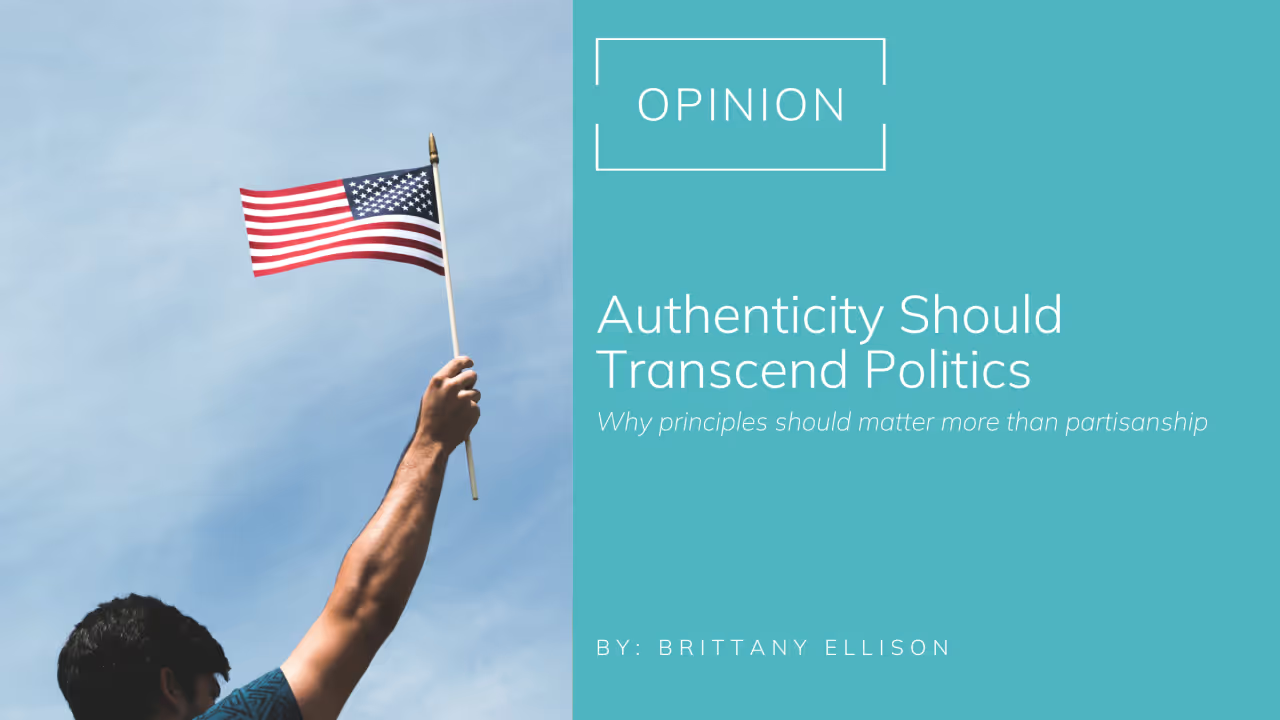
Author: Brittany Ellison
Authenticity is something that can’t be manufactured—either your actions match your words, or they don’t. It’s something we instinctively value because we know when someone is being real versus when they’re just saying what they think people want to hear. But in the world of politics and public discourse, authenticity is often sacrificed in favor of convenience and short-term wins.
At its core, authenticity means aligning words with actions. It means standing by the values you claim to hold, even when it’s inconvenient or uncomfortable. Yet, we see time and time again that when political expediency is on the line, those values can shift depending on who benefits.
A recent situation in Congress highlights this issue. The Republican Party often brands itself as the party of family values, advocating for policies that encourage strong families and support working parents. But when a Democratic congresswoman requested a temporary accommodation for proxy voting due to having a newborn, many Republicans attacked her—not based on the merit of the request, but because of party affiliation. Meanwhile, when a Republican high-level staffer brought her baby to a meeting, the same critics praised the moment as a sign of family-first leadership.
This isn’t about whether proxy voting is good policy; it’s about consistency. If we genuinely believe that we need more mothers in leadership and that family should come first, then our response should reflect those principles no matter who is involved. Too often, people criticize a situation not because they truly oppose it, but because the person involved is on the “other side.” If a political opponent does something, it’s wrong—but if someone from our own camp does the same thing, we justify it. This isn’t just hypocrisy; it’s a failure of integrity. When values are conditional, they cease to be values at all.
This kind of inconsistency doesn’t go unnoticed. People—especially younger generations—are growing increasingly frustrated with institutions and leaders who say one thing and do another. Trust erodes when authenticity is compromised, and once lost, trust is incredibly difficult to rebuild.
The real challenge is in staying true to principles, no matter the circumstance. If we say we value family, then we should support policies and actions that reflect that belief—even when they’re inconvenient or politically complicated. If we say we believe in personal responsibility, fairness, or freedom, then those principles should be applied across the board, not just when it benefits our preferred group.
At FLEX, we are always striving for authenticity—with ourselves, our business, and our clients. We know that credibility is built over time and is only sustained when actions align with words. Whether in politics, business, or personal relationships, people crave realness. And realness only exists when values are consistent—when principles guide decisions, not the other way around.
Authenticity is not about being perfect or never evolving. It’s about being honest—honest with ourselves, with others, and with the values we claim to uphold. When we abandon that honesty in favor of political point-scoring, we don’t just lose an argument; we lose credibility.
In a world where trust in institutions and leaders is at an all-time low, authenticity is more valuable than ever. Whether in politics, business, or personal relationships, people crave realness. And realness only exists when values are consistent—when principles guide decisions, not the other way around. If we want to be people of integrity, then our commitment to truth must be stronger than our desire to “win.” Otherwise, what exactly are we fighting for?

Ready to FLEX?
When you're ready for strategic support that adapts to your unique needs, FLEX Partners is here to help. Connect with us to explore how we can empower your success.
